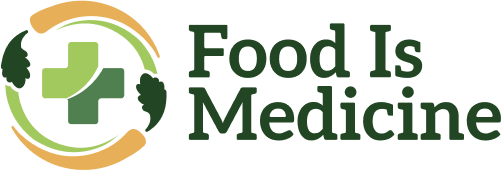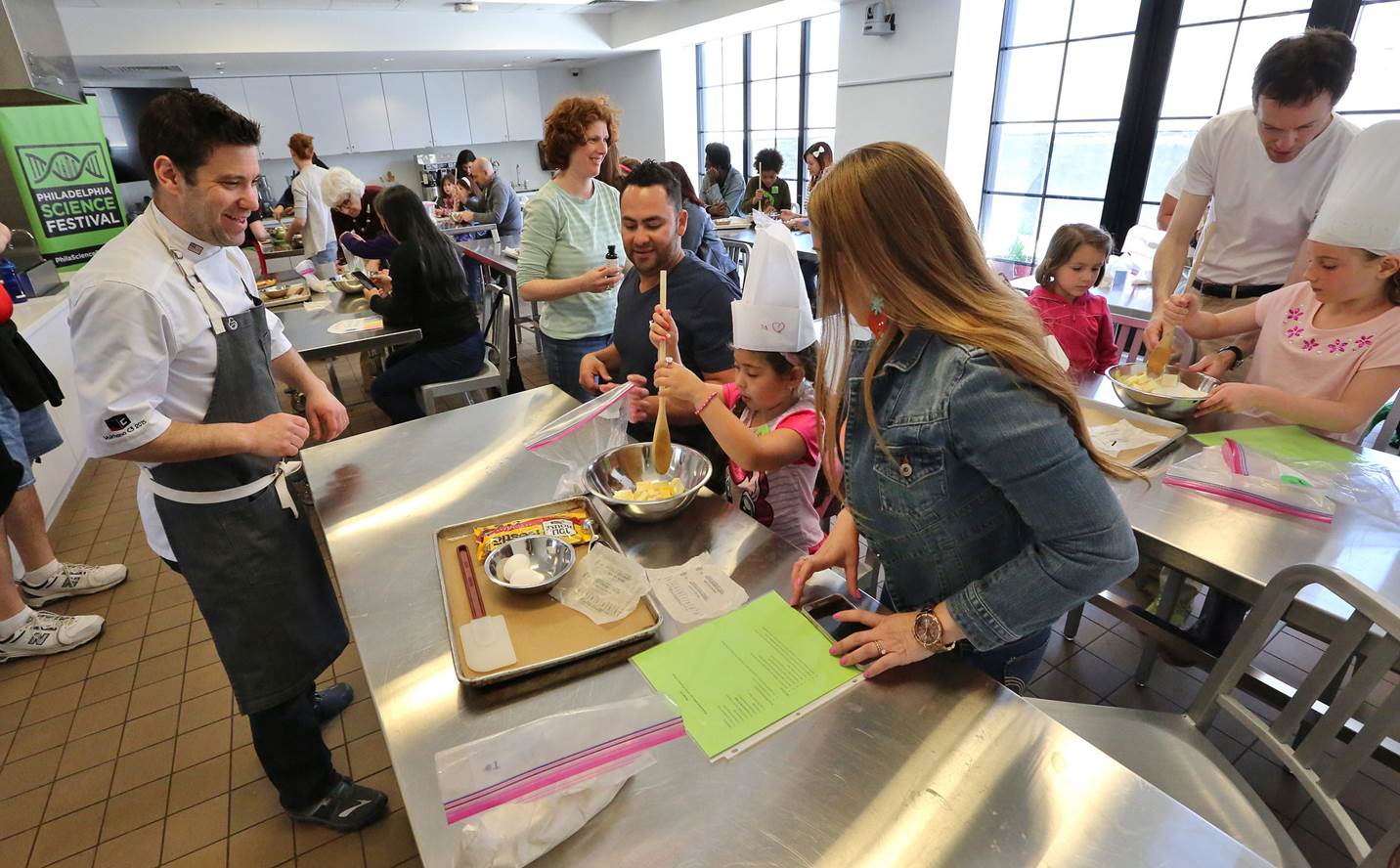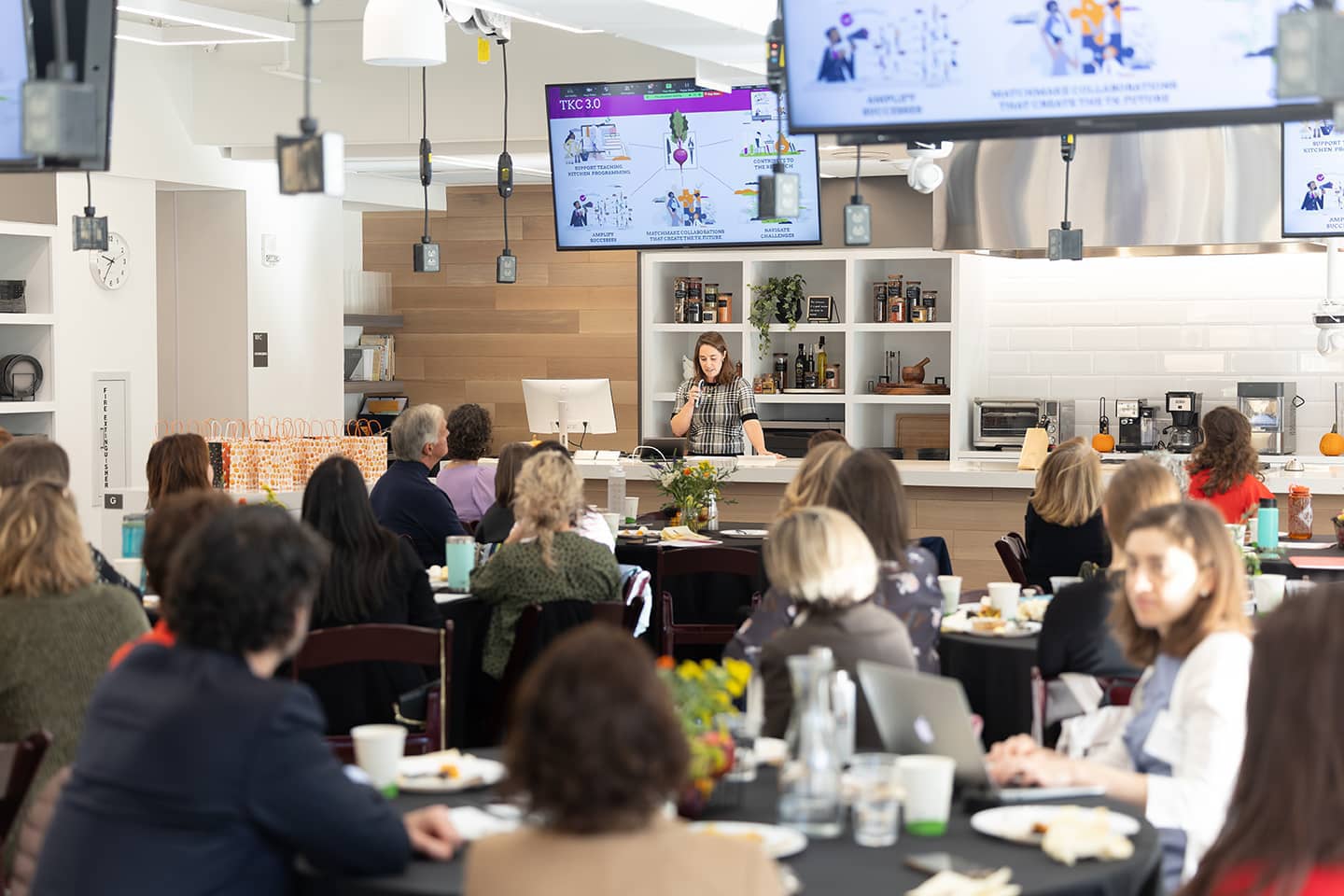Resource Exchange
Provides a platform for members to exchange research, findings, resources, best practices, and solutions to problems for operating teaching kitchens.
Collaboration
Members convene and collaborate through annual conferences, virtual working groups, and member-coordinated meetings.
Research
Promotes and coordinates research to provide objective evidence to demonstrate the benefits of teaching kitchens.
Bright Spot Profile
Teaching Kitchen Collaborative (TKC) advances Food is Medicine (FIM) efforts by bringing teaching kitchens together. The collaborative is far greater than the sum of its members which include 67 Organization Members and more than 260 Professional Members. TKC’s impact extends beyond its national and international member kitchens because it provides a conduit for members to learn from each other, leverage capabilities and resources, and generate a community of evidence and tools to objectively show that FIM interventions can be transformative.
TKC was included in the Bright Spots series to highlight an organization that facilitates knowledge of how nutrition affects health by engaging people and their communities through dynamic communication and tailored messaging.
Teaching Kitchen Concept
Teaching kitchens offer in-person and virtual experiential learning in healthy cooking techniques with the goal of instilling behavior change that improves diet quality and reduces the risk of diet-related diseases. In addition to cooking skills, many teaching kitchens also educate the public about self-care topics including nutrition, mindfulness, physical activity, and environmental sustainability to foster a holistic sense of well-being and support long-term behavior change.
TKC’s members are as diverse as the populations and regions they serve, such as a rural kitchen in a southwestern Texas medical center, a 2,300-square-foot state-of-the-art facility at a university in Ohio, a kitchen in a Philadelphia public library, and a kitchen within a German sports park operated in partnership with a university.
Many TKC members partner with federal food programs such as SNAP, SNAP-Ed, and WIC, or collaborate with clinics that already have a food pantry and/or produce prescription programs. TKC members are typically managed by teams of medical doctors, registered dietitians, and chefs who are aligned in their belief that skills enhancement and behavior change are essential to the long-term success of FIM interventions.
Moving Forward
TKC is leading national efforts to assess programs, track outcomes, promote research, advocate for insurance and third-party reimbursements, and ultimately co-create standards for teaching kitchen programs across the United States.
By growing TKC’s membership and strengthening channels for data and resource sharing, the TKC will help the field codify what a teaching kitchen is, how it works, and what common outcomes and metrics the FIM community should expect. Centralized data about teaching kitchens and codification will be especially valuable for promoting reimbursement and integration with medical care.
Guidance for Implementers
One TKC resource is a toolkit [PDF - 2.8 MB] that serves as a primer for setting up and operating a teaching kitchen program, providing guidance for aspiring teaching kitchen implementers. The toolkit acknowledges the diversity of teaching kitchens but generally recommends supporting hands-on instruction for groups of 20 or fewer participants and stocking kitchens with home equipment rather than commercial grade whenever possible.
It also details different types of teaching kitchens — including modular/pop-up kitchens, pod or container kitchens, built-in kitchens, and virtual kitchens — and offers guidance on how implementers can choose the best kitchen based on their budget, available resources, and goals.





